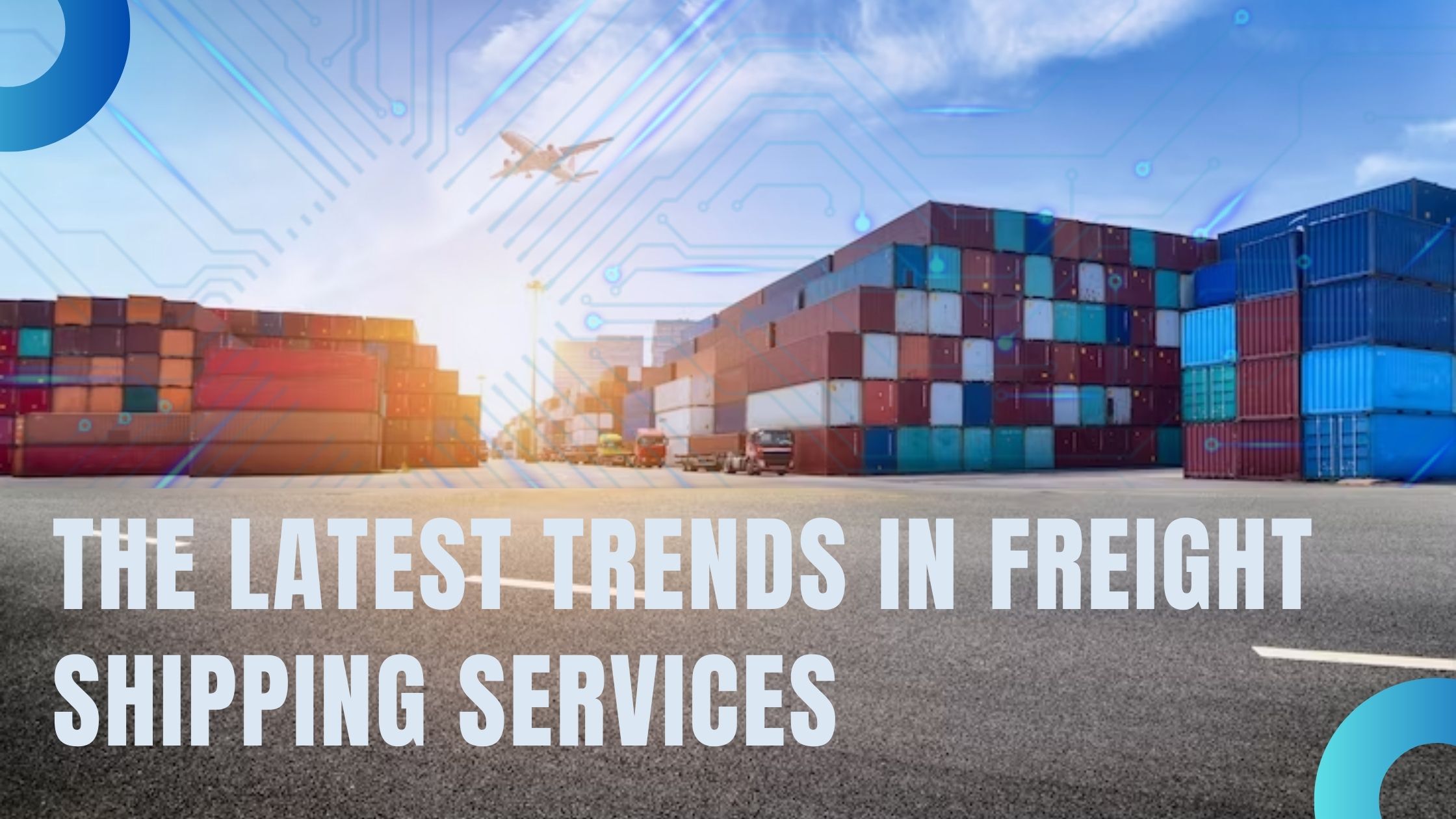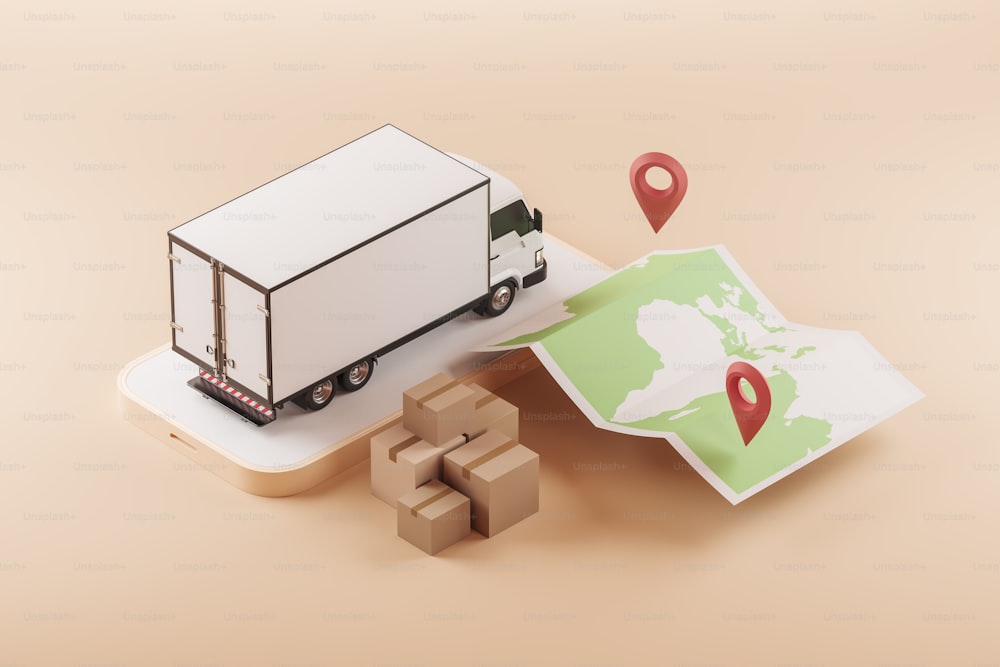As citizens of Bakersfield, we’ve witnessed firsthand the bustling economy and the need for efficient logistics in freight shipping. Bakersfield, located inside the heart of California, is a important transportation hub for goods moving across the state and beyond. In this text, we will delve into the significance of streamlining freight shipping in Bakersfield, discuss the challenges faced via businesses in the area, explore the cutting-edge trends in logistics, and provide tips for finding reliable shipping companies. Via the end, you will have a complete understanding of how logistics shape the fulfillment of freight shipping Bakersfield.
The Importance of Efficient Logistics in Freight Shipping
Efficient logistics play a crucial role in the success of freight shipping in Bakersfield. With its strategic location, Bakersfield is a primary gateway for goods to reach various destinations. Timely and reliable delivery of goods is paramount for businesses to meet customer demands and maintain a competitive edge. Streamlining freight shipping operations ensures that goods are transported seamlessly, reducing transit times and minimizing the risk of damage or loss.
Efficiency in logistics also translates to cost savings. Businesses can minimize transportation costs and maximize profitability by optimizing routes, consolidating shipments, and utilizing advanced tracking systems. Furthermore, efficient logistics help companies to maintain inventory levels and respond swiftly to changing market demands. By streamlining freight shipping, companies in Bakersfield can enhance customer satisfaction and gain a reputation for reliability and professionalism.
Challenges in Freight Shipping in Bakersfield
Despite the many benefits of freight shipping in Bakersfield, businesses face several challenges. One of the primary challenges is traffic congestion. Bakersfield’s proximity to major highways and its role as a transportation hub often result in heavy traffic, leading to delays and inefficiencies in freight transportation. Overcoming traffic congestion requires innovative solutions, such as implementing intelligent transportation systems and optimizing delivery routes.
Another challenge is the fluctuating fuel prices, which directly impact transportation costs. Businesses must navigate these volatile prices and find ways to mitigate the financial burden. Additionally, compliance with local and federal regulations poses a significant challenge for Shipping companies in Bakersfield CA. Adhering to safety regulations, obtaining necessary permits, and staying up-to-date with changing legislation is crucial to avoiding penalties and maintaining efficient operations.
Latest Trends in Logistics for Streamlining Freight Shipping
To overcome the challenges faced in freight shipping, businesses in Bakersfield are embracing the latest trends in logistics. One of these trends is the integration of technology. Advanced tracking systems and real-time data analytics enable enterprises to monitor shipments, optimize routes, and promptly address any issues. Automation is also gaining prominence, with businesses using robotics and artificial intelligence to streamline warehouse operations and improve efficiency.
Sustainability is another trend shaping the logistics industry. Bakersfield is committed to reducing its carbon footprint, and freight shipping companies are following suit. Utilizing alternative fuels, implementing eco-friendly packaging, and adopting energy-efficient practices are becoming standard in the industry. By prioritizing sustainability, businesses contribute to a greener future, enhance their reputation, and attract environmentally conscious customers.
Technology Advancements in Freight Shipping
Technology advancements have revolutionized the freight shipping industry in Bakersfield. Automated systems and software solutions have simplified and accelerated various processes, from inventory management to documentation. Internet of Things (IoT) devices, such as sensors and RFID tags, enable real-time tracking of shipments, ensuring transparency and accountability. Furthermore, cloud-based platforms facilitate seamless communication and collaboration between stakeholders, including shippers, carriers, and customers.
Artificial intelligence (AI) and machine learning algorithms are harnessed to optimize route planning, minimize fuel consumption, and improve efficiency. Predictive analytics allows businesses to anticipate demand patterns, optimize inventory levels, and reduce wastage. Additionally, autonomous vehicles and drones are being explored as potential solutions to streamline last-mile deliveries and overcome traffic congestion.
Sustainable Practices in Freight Shipping
Sustainability is a pressing concern in the freight shipping industry, and businesses in Bakersfield are actively adopting sustainable practices. Transitioning to alternative fuels, such as electric and hybrid vehicles, reduces greenhouse gas emissions and dependence on fossil fuels. Additionally, implementing efficient packaging practices, such as using recyclable materials and reducing packaging waste, contributes to a greener supply chain.
Furthermore, businesses are exploring innovative solutions to minimize empty miles and maximize load optimization. Collaborative shipping platforms connect businesses with complementary shipping needs, allowing them to share shipments and reduce the number of open trucks on the road. This not only reduces fuel consumption but also enhances resource utilization and cost-effectiveness.
Tips for Finding Reliable Shipping Companies in Bakersfield
Finding reliable Bakersfield trucking company is essential for businesses looking to streamline their freight shipping operations. Here are a few tips to help you find the right shipping partner:
Research and compare multiple shipping companies:
Take the time to research and compare the services offered by different shipping companies in Bakersfield. Look for companies with a proven track record of reliability, efficiency, and customer satisfaction.
Check for appropriate licenses and certifications:
Ensure your chosen shipping company is appropriately licensed and certified to handle your specific needs. This ensures compliance with safety regulations and provides peace of mind.
Read customer reviews and testimonials:
Seek feedback from other businesses that have worked with the shipping companies you are considering. Customer reviews and testimonials can provide valuable insights into the reliability and quality of service.
Evaluate technology and tracking capabilities:
Look for shipping companies that utilize advanced technology and offer robust tracking capabilities. Real-time tracking and visibility help you stay informed about the status of your shipments and ensure timely delivery.
Consider additional services and value-added offerings:
Besides transportation, consider shipping companies that provide other services like warehousing, packaging, and customs clearance. These value-added offerings can streamline your supply chain and save time and effort.
Benefits of Outsourcing Freight Shipping Services
Outsourcing freight shipping Bakersfield offers numerous benefits for businesses.
- Firstly, it allows businesses to focus on their core competencies and leave the complexities of logistics to experts. Outsourcing frees up valuable time and resources that can be redirected towards business growth and development.
- Secondly, outsourcing provides access to a vast network of carriers and shipping options. Shipping companies have established relationships with carriers, enabling businesses to choose the most cost-effective and efficient transportation solutions. This flexibility ensures that companies can seamlessly meet changing customer demands and scale their operations.
- Lastly, outsourcing freight shipping services can lead to cost savings. Shipping companies leverage economies of scale and negotiate favorable rates with carriers, passing these savings to their clients. By outsourcing, businesses can reduce transportation costs, eliminate the need for expensive equipment and infrastructure, and optimize their overall supply chain.
Conclusion
Streamlining freight shipping in Bakersfield is vital for organizations to thrive in the competitive marketplace. By embracing the state-of-the-art trends in logistics, leveraging technology advancements, adopting sustainable practices, and partnering with reliable shipping companies, businesses can conquer challenges and enhance their efficiency and profitability. The continuous evolution of logistics offers opportunities and challenges, and businesses in Bakersfield should stay abreast of these trends to remain at the forefront of the freight shipping industry.
Click here to explore how Roadies Inc. can streamline your freight shipping needs in Bakersfield.












